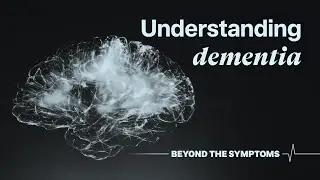What are the early signs of dementia?
Dementia is not a single disease. It is a broad term to describe the slow, progressive decline in brain function that causes cognitive impairment. This includes things like memory loss and behavioural changes. There are many types of dementia and everyone who has it experiences it differently.
Researchers at Griffith University are working on ways to help diagnose dementia earlier so that effective interventions can be started sooner and its progression can be slowed.
Presenter:
Professor James St John is Head of the Clem Jones Centre for Neurobiology and Stem Cell Research. James is a Life Technologist specialising in the creation and translation of therapies to repair injuries and diseases of the nervous system. He has a particular interest in understanding the biology of the olfactory system (sense of smell) and the role of glial cells in the functioning and repair of the nervous system. The role of microbes in neurodegeneration is one of his main areas of research.
0:00 Introduction
0:36 What is dementia?
1:41 How is dementia diagnosed?
Symptoms:
3:04 What are the signs of dementia?
4:19 When should you see a doctor?
Causes:
4:43 What are the risk factors for dementia?
Treatment and management:
5:41 Can dementia be treated?
6:16 How can dementia be managed?
Prevention:
6:55 Can dementia be prevented?
The information in this video was accurate as of the upload date, [28/05/2024]. For information purposes only. Consult your local medical authority for advice.
________________________________________________________
Griffith University | CRICOS: 00233E | TEQSA: PRV12076

















